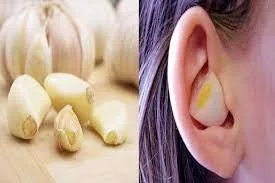Garlic has long been hailed for its medicinal properties and culinary versatility, but its potential benefits extend far beyond the kitchen. One intriguing practice that has garnered attention is the use of garlic in ear treatments. Advocates claim that inserting garlic cloves or garlic-infused oil into the ear can alleviate various ear-related issues, from earaches to ear infections. In this article, we explore the potential effects of putting garlic in your ear and examine the scientific evidence behind this age-old remedy.
Historical Use of Garlic in Ear Treatments: The use of garlic in ear treatments dates back centuries and is rooted in traditional medicine practices from around the world. Ancient civilizations, including the Egyptians, Greeks, and Romans, utilized garlic for its purported antibacterial, antifungal, and anti-inflammatory properties. Garlic was often applied topically or ingested orally to treat a wide range of ailments, including ear infections and earaches. Over time, this practice has persisted in various cultures, with many people continuing to turn to garlic as a natural remedy for ear-related issues.
The Potential Benefits of Garlic in Ear Treatments: Proponents of using garlic in ear treatments claim that it offers several potential benefits for ear health. Garlic contains a compound called allicin, which exhibits antimicrobial properties that can help combat bacteria, viruses, and fungi. By inserting garlic cloves or garlic-infused oil into the ear canal, it is believed that these antimicrobial properties can help reduce inflammation, alleviate pain, and fight off infections. Additionally, garlic may help improve circulation and promote healing in the affected ear tissues, further supporting the recovery process.
Scientific Evidence and Research: While anecdotal evidence and historical use suggest that garlic may have therapeutic effects when applied to the ear, scientific research on this topic is limited. There is a lack of large-scale clinical trials evaluating the efficacy and safety of garlic in ear treatments, and the existing studies are mostly anecdotal or small-scale. However, some preliminary research has suggested that garlic may have antibacterial and antifungal properties that could be beneficial for treating ear infections. More high-quality research is needed to better understand the potential benefits and risks of using garlic in ear treatments....Read Full Article [Click Here>]
Precautions and Considerations: Before attempting to use garlic in your ear, it’s essential to exercise caution and consult with a healthcare professional, particularly if you’re dealing with a severe ear issue or have a history of ear problems. Inserting foreign objects into the ear canal can potentially cause injury or damage to the delicate structures of the ear, so it’s crucial to follow proper guidelines and techniques. Additionally, if you experience severe pain, drainage, or hearing loss, seek medical attention promptly, as these symptoms may indicate a more serious underlying condition that requires professional evaluation and treatment.
Conclusion: In conclusion, the practice of putting garlic in your ear is rooted in traditional medicine and has been used for centuries as a natural remedy for ear-related issues. While anecdotal evidence and historical use suggest that garlic may offer potential benefits for ear health, scientific research on this topic is limited, and more studies are needed to validate its efficacy and safety. If you’re considering trying garlic in your ear as a home remedy, it’s essential to approach it with caution, seek guidance from a healthcare professional, and be mindful of any potential risks or complications. Ultimately, while garlic may hold promise as a natural treatment for ear problems, further research is necessary to determine its true effectiveness and optimal use in clinical practice.





